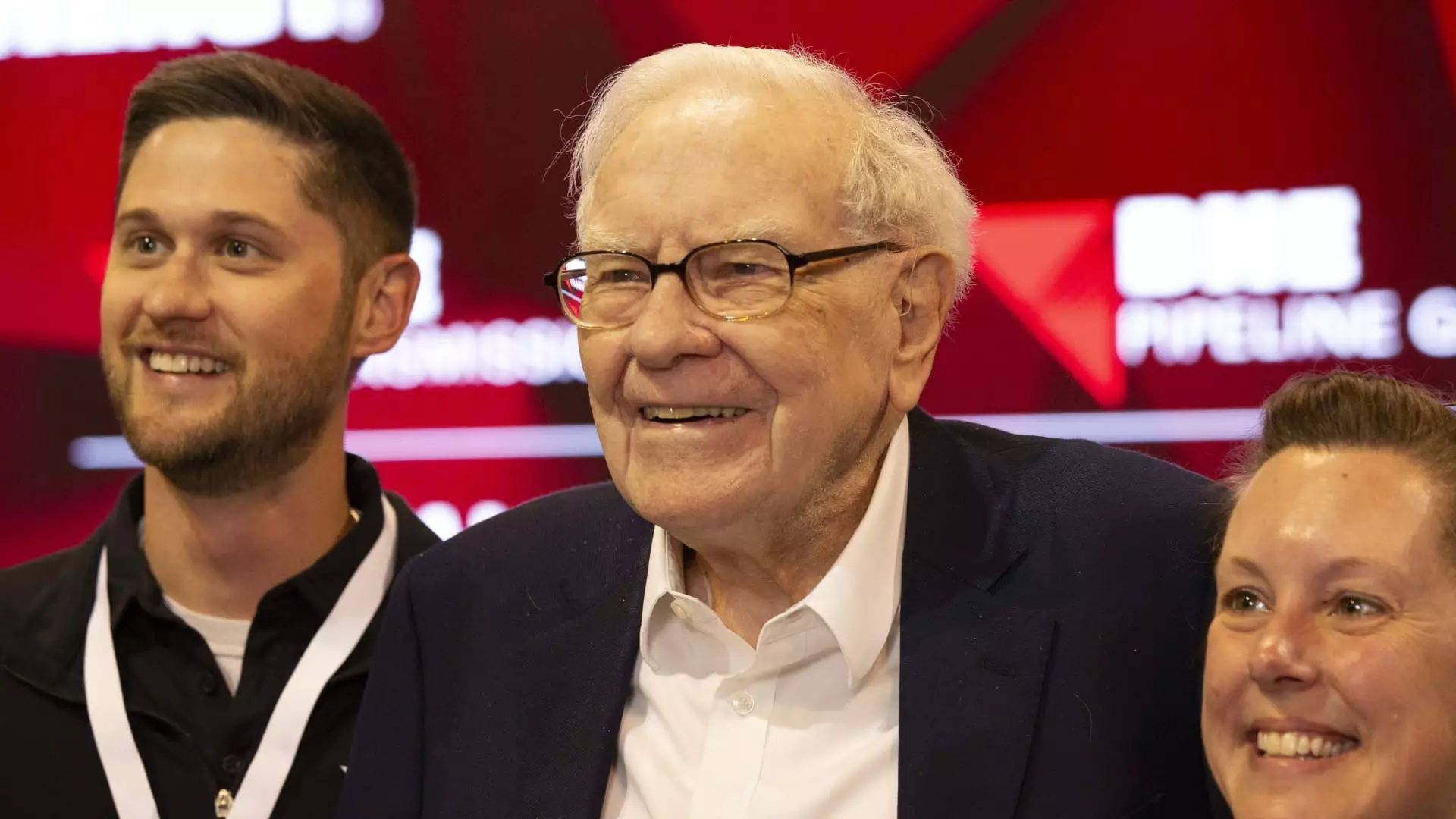Berkshire Hathaway, under the legendary leadership of Warren Buffett, has made headlines again with its recent increase in stakes in the satellite radio company SiriusXM, now owning a remarkable 32%. The conglomerate’s maneuver to acquire approximately 3.6 million shares at around $87 million signals a clear strategic interest in the audio entertainment sector. This notable move comes on the heels of a crucial deal facilitated by media mogul John Malone’s Liberty Media, which combined its tracking stocks with SiriusXM in an intricate reshuffle of his expansive media portfolio.
The intricacies of this investment reveal deeper financial motivations. Berkshire’s timing suggests a calculated approach towards merger arbitrage—capitalizing on pricing discrepancies in the wake of Malone’s media restructuring. It evokes questions about whether Buffett himself or his trusted investment lieutenants, Ted Weschler and Todd Combs, are steering this initiative. Notably, despite this significant investment, Buffett has remained reticent about the move, leaving analysts and investors speculating on the rationale behind it.
Despite the optimistic stock pop of 8% following Berkshire’s disclosure, SiriusXM faces formidable hurdles. The satellite radio company is grappling with subscriber attrition and demographic challenges that have led to a lukewarm reception on Wall Street. According to reports, only five out of 14 analysts covering the stock have issued buy ratings, signaling a pervasive skepticism about the firm’s long-term growth trajectory. JPMorgan’s Sebastiano Petti highlighted these concerns, reopening coverage with an underweight rating and cautioning that SiriusXM needs to rejuvenate its brand appeal to a broader audience.
Compounding these issues is the recently completed Liberty Media transaction, which resulted in a 12% reduction in outstanding shares. This move could potentially stall SiriusXM’s stock buyback initiatives until 2027, a pause likely to weigh heavily on share performance. Such financial maneuvers cast a shadow over the stock’s recovery prospects, challenging its historical resilience in a media landscape increasingly cluttered with options for consumers.
Notably, this isn’t Berkshire’s first foray into the entertainment space. The conglomerate’s previous investment in Paramount Global’s Class B shares in 2022 ended in disappointment, leading Buffett to reassess the dynamics of viewer engagement in an oversaturated streaming market. The lessons gleaned from this experience may guide Berkshire’s strategy moving forward, particularly as Buffett cautions against getting entangled in a saturated industry driven by fierce price competition.
As Berkshire Hathaway’s substantial wager on SiriusXM unfolds, the implications resonate throughout the investment community. While this strategic move may signify potential upside in the long term, SiriusXM’s current landscape is fraught with challenges that warrant careful observation. Investors and analysts alike will be watching closely to see if this bold bet on the future of audio entertainment pays off or if it becomes another cautionary tale in the annals of investment history.

